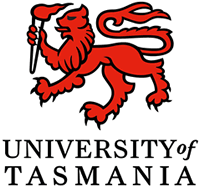About the research project - https://www.utas.edu.au/our-research/research-degrees/available-projects/health-and-medicine/area/menzies-institute-of-medical-research/can-a-familial-genetic-variant-in-nlrx1-cause-multiple-sclerosis
Multiple Sclerosis (MS) is a complex disease, involving the immune system and brain, with no known cause or cure. Numerous factors, including a person’s environment, lifestyle and genetics, influence whether they will develop MS. Some common genetic risk factors have been identified, but most have no known biological role in MS. Our team studies families with an unusually high incidence of MS. Within these families, multiple first-degree relatives have MS, suggesting that their genetic contribution to MS development outweighs the environmental and lifestyle contributions. By performing whole genome sequencing we have identified a variant in the NLRX1 gene that results in an amino acid substitution in the protein and is only found in affected family members. NLRX1 encodes a mitochondrial protein that regulates the inflammatory response, and we hypothesise that altered NLRX1 signalling propagates neuroinflammation and neurodegeneration, affecting brain cell types including microglia and oligodendrocyte progenitor cells. This project will characterize the molecular and cellular consequences of the NLRX1 variant and determine whether it is sufficient to cause or contribute to the onset of MS. This project involves the use of plasmids to overexpress the NLRX1 variant in cultured cells and evaluate its binding partners. The project adopts a transgenic mouse approach to manipulate the expression of NLRX1 in the brain, and involves handling and monitoring live mice, carrying out motor and behavioural testing, and performing confocal microscopy and image analysis. The student will work within the MS Research Flagship to ultimately determine whether mice carrying human genetic variants associated with MS represent a world-first preclinical model of MS, that can be used for the preclinical testing of brain repair therapies.
**Multiple students can undertake different aspects of this project, and the co-supervisory team can be finalised following a discussion with Dr Fletcher.
Funding
Applicants will be considered for a Research Training Program (RTP) scholarship or Tasmania Graduate Research Scholarship (TGRS) which, if successful, provides:
- a living allowance stipend of $28,597 per annum (2021 rate, indexed annually) for 3.5 years
- a relocation allowance of up to $2,000
- a tuition fees offset covering the cost of tuition fees for up to four years (domestic applicants only)
If successful, international applicants will receive a University of Tasmania Fees Offset for up to four years.
As part of the application process you may indicate if you do not wish to be considered for scholarship funding.
Eligibility
The project is open to domestic (Australian and New Zealand) and international applicants.
Applicants should review the Higher Degree by Research minimum entry requirements.
Selection Criteria
The project is competitively assessed and awarded. Selection is based on academic merit and suitability to the project as determined by the College.
Additional essential selection criteria specific to this project:
- A BSc (Hons) degree or equivalent
Additional desirable selection criteria specific to this project:
- A background in neuroscience would be advantageous
- Experience working in a laboratory
Application process
After checking and ensuring that you meet the eligibility and selection criteria contact the project supervisor.

 Continue with Facebook
Continue with Facebook



